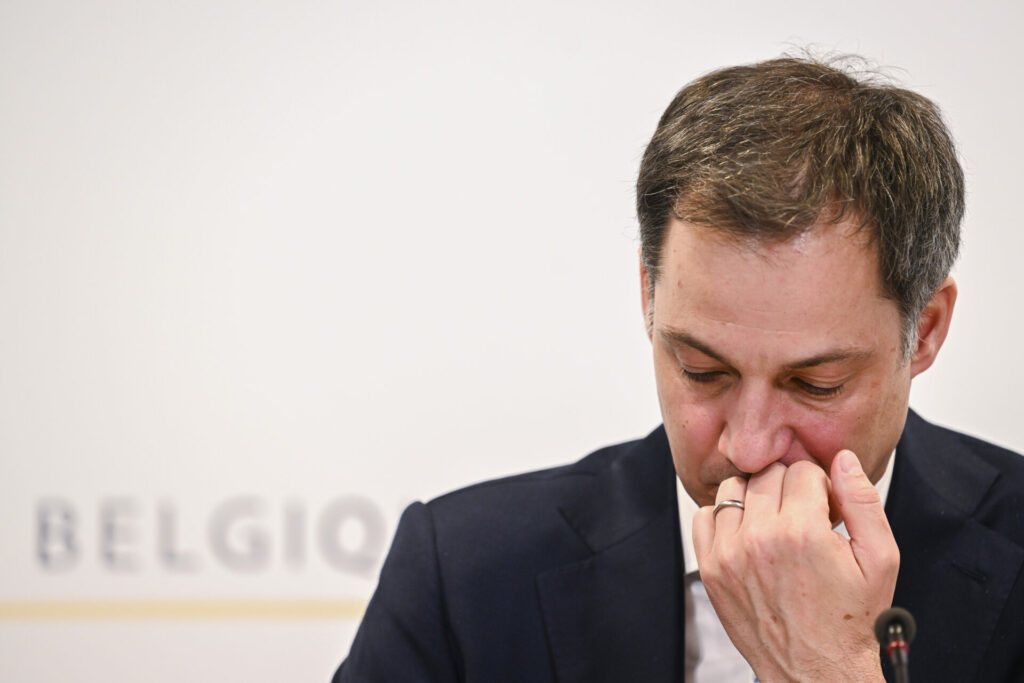The Consultative Committee meets today (Wednesday) at 15:00 to discuss the energy crisis and what steps can be taken at the national level to protect consumers and businesses. Here's what's on the table.
The meeting, which brings together Belgium's top ministers from all governments, was a cornerstone of setting pandemic policy. Now, the country is facing a crisis of a different kind, in which skyrocketing energy prices are leaving people unable to afford bills, even before entering winter, known to be the most challenging season.
During this meeting, the different governments are expected to discuss what measures and steps they can take separately and what can be done at the national level.
But what is the extent of the measures and will they have a real impact on our bills?
Building on existing measures
In the weeks following the start of the Ukraine war which aggravated the already ongoing energy crisis, the Federal Government already announced various measures. Among them, VAT for gas and electricity was reduced to 6% and the social rate was extended until the end of 2022. These measures are expected to be extended or expanded again.
It is also possible that the target group of the social rate could be expanded to include the lower middle class, as they are currently not included in the safety net. Should these measures be implemented, their benefit will soon be felt by the general public.
However, an increasing number of households in Belgium are benefitting from the reduced social energy tariffs while prices are rising, shouldering the government with high costs and further straining public finances. Others have criticised the temporary nature of these measures.
Price cap
Across Europe, Member States are increasingly calling for price caps on natural gas. However, this decision is normally made at the EU level.
Nonetheless, Spain has already taken steps to introduce a price ceiling for natural gas. Austria is assessing a cap on electricity prices and there are suggestions that Belgium could move on its own. One idea is a system with a regulated tariff for basic consumption – similar to the water bill.
There are fears that EU countries putting a cap on these prices could see their supply cut, as the natural gas market is an international market: if other countries bid higher, they are more likely to receive supplies.
Czechia, which currently holds the presidency of the EU, has called for a meeting with energy ministers of EU Member States and said that an extraordinary meeting will be held in Brussels on 9 September to agree on the proposed reforms.
Taxing excess profits
In the second quarter of this year, energy giants from French TotalEnergies to the UK's Shell posted record profits, with some more than quadrupling their profits compared to the same period last year.
Taxing the excess profits that energy companies make due to soaring energy prices is a measure that has repeatedly been called for by Energy Minister Tinne Van der Straeten and is seen as one of the more realistic options in light of the crisis.
The plan would be to impose an additional tax on these companies, the proceeds of which would then be rediverted to the public, possibly in the form of energy vouchers. However, this measure has many legal implications making it unlikely to be a decision taken today.
Other measures
The French-speaking Socialist Party (PS) wants middle-class families in Belgium, which are not (yet) covered by the social tariff, to see their net purchasing power go up by at least €100 through a tax shift to help pay the more expensive energy bills.
Meanwhile, Federal Social Affairs Minister Frank Vandenbroucke on Tuesday suggested temporarily putting mortgage loans on hold "to give people more financial breathing space." This would also allow companies in difficulty to postpone their social security payments.
At the regional level, reducing the lighting and heating of public buildings or switching off the lighting of monuments and motorways could also be discussed, accompanied by a broader communication campaign to consume less.
Regional governments can also encourage renovations and energy-saving works on houses to make them more energy efficient, however, the impact of this will not be felt in the short term.
A more divisive issue on the table is also the extension of nuclear power plants the Doel 3 and Tihange 2 nuclear reactors, however, for Engie, which operates the plants, this is impossible. Prime Minister Alexander De Croo and Van der Straeten are in discussions with the company to keep them open longer.
Will bills go down soon?
Whether people's energy bills will go down any time soon after the Consultation Committee is highly doubtful, as quick decisions are unlikely to be made due to budget restrictions, legal precarity and political challenges. Others have said the most impactful measures can only be taken on a European level.
Related News
- Energy crisis: How to tax excess profit from energy companies?
- Consumers see food costs rise as inflation hits 46-year high
Energy experts say that any decision will be too late, as the crisis has been going on for months and meeting at this point will do little to resolve ingrained issues. "It surprises me that it has taken so long because this gas and electricity crisis has been going on for months," Rik Van Cauwelaert, a political analyst at De Tijd, told Radio 1.
Even Environment Minister Zuhal Demir said it is a "bad idea to create high expectations, as some politicians have already done." She added that the Flemish level has already done enough and it will not come up with new proposals.

